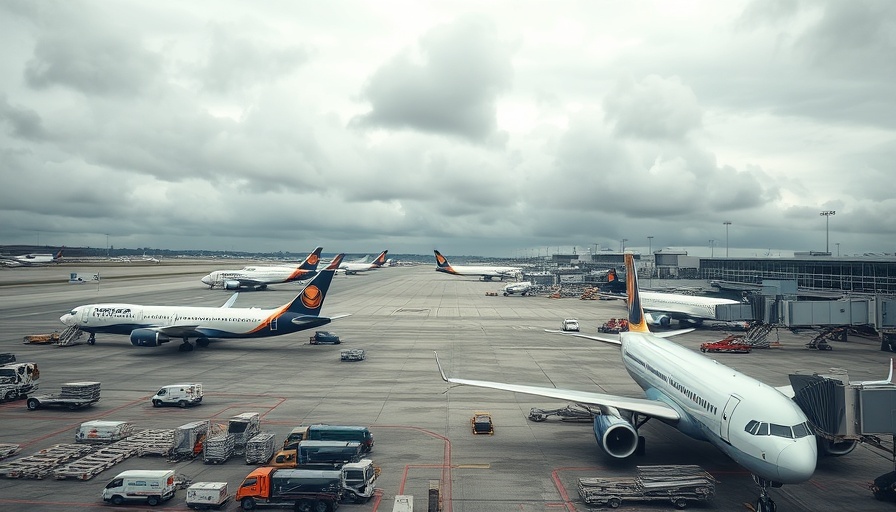
Trump's Travel Ban: A Closer Look
On June 4, 2025, President Trump's administration took a significant step in immigration policy by issuing a proclamation to ban entry from 12 countries, citing national security concerns. This move raises crucial questions about the implications for foreign relations, the perception of safety, and the treatment of individuals seeking asylum.
The List of Banned Countries
The countries affected by this ban include Afghanistan, Myanmar, Chad, the Republic of Congo, Equatorial Guinea, Eritrea, Haiti, Iran, Libya, Somalia, Sudan, and Yemen. Additionally, Trump’s order includes partial restrictions on several other nations such as Burundi, Cuba, Laos, Sierra Leone, Togo, Turkmenistan, and Venezuela. This expansive list, particularly targeting nations that have been previously subjected to scrutiny regarding terrorism and immigration, signals a continuation of his administration's hardline stance.
National Security vs. Discrimination
While the administration frames these travel bans as essential for national security, critics argue that such measures discriminate against individuals based solely on their ethnicity and nationality. Trump has faced backlash before for his immigration policies, which often appear to disproportionately impact Muslim-majority nations. Proponents of the ban cite events like the recent terror attack in Boulder, Colorado, as justification, emphasizing the need for better vetting of incoming individuals.
Domestic and International Outcry
The announcement has sparked a fierce debate within the U.S., with many civil rights advocates labeling it as another instance of discriminatory policy that erodes trust between the government and communities of color. Internationally, allies may perceive the ban as a retreat from the U.S. as a welcoming nation. Countries like Iran and Afghanistan have expressed outrage, questioning America's commitment to human rights and global cooperation.
Historical Context
Travel bans are not a new concept in American politics. The Obama administration also took steps to restrict entries from certain countries, albeit not as expansively. However, Trump's approach seems more sweeping and permanent, intertwining national security with ethnic and religious profiling. It's essential to understand how these historical precedents shape current policies and public reaction.
Future Predictions and Trends
As the Trump administration continues to modify existing immigration practices, experts predict a likely increase in legal challenges to these bans. Organizations like the American Civil Liberties Union (ACLU) are gearing up for court battles, arguing that the bans violate the constitutionality of equal protection. Moving forward, the conversation around immigration will likely remain contentious, fueling further polarization in American politics.
Practical Insights for the Public
This travel ban affects not only those seeking entry but also U.S. citizens and residents with family connections abroad. Individuals need to stay informed about visa regulations and the potential impact on familial, educational, and business travel plans. Seeking advice from immigration lawyers may provide better understanding and avenues for affected individuals.
Emotional Impact
For many, the ban carries significant emotional weight. Families may be separated, and opportunities for education or fostering cultural exchange could be lost due to these restrictions. Understanding the human stories behind the statistics is vital as they often paint a more comprehensive picture of the impact of such policies.
As discussions about national security and immigration evolve, it is imperative for the public to remain engaged. Continued advocacy for policy that balances security with compassion and inclusion is essential. It is critical now, more than ever, to foster a dialogue rooted in empathy, ensuring that the narrative around immigration does not forget the people involved or the values upon which America was founded.
Take action by engaging with local immigrant support networks and voicing your perspectives on immigration policy. Join discussions on social media or community forums to contribute to a dialogue that values human dignity and safety.
 Add Row
Add Row  Add
Add 




 Add Row
Add Row  Add
Add 

Write A Comment